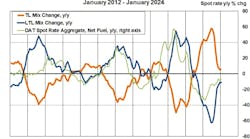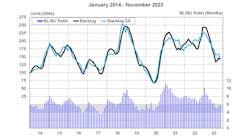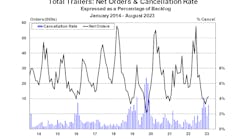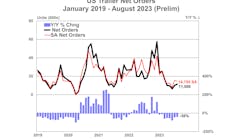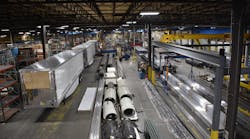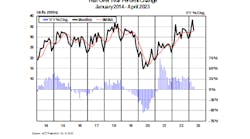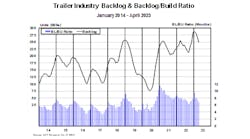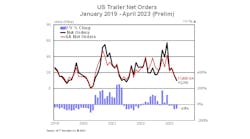Consulting group CLEAR forecasts a 30% increase in European trailer demand in 2010, along with a 45% increase in production.
“We have seen an unprecedented decline in the demand for transport at the same time as Europe was stuffed with nearly new trailers,” said Gary Beecroft, managing director of CLEAR. “This combination has proved disastrous for the industry. However, I expect a 30% increase in demand in 2010 and a 45% increase in production.
“Normally such increases would be an excuse for champagne all round. But we are starting from such a low base that in terms of numbers of trailers, the figures are not that impressive. In Germany in particular, Europe’s largest market, demand will be held back by the oversupply of trailers in 2007-2008.”
A recovery in investment is forecast in most West European economies in the last quarter of 2010. Trailer demand is usually a leading indicator, so Beecroft said a recovery should start about six months earlier.
The last severe downturn in the heavy goods trailer market was in 1993, but he said this one has been worse. In 1992-93, the demand for trailers fell by 31%, or 37,000 trailers. In 2008-09, the fall was 50%, or 104,000 trailers.
Back in 1993, the peak demand for trailers before the downturn was 120,000 units. This time the market reached 208,000 in 2007 but fell to 104,000 in 2009.
Before 1993, peak trailer production was 126,000 per annum, but in 2007 production reached 292,000, which was forecast to fall to 102,000 in 2009, a fall of 65% or 190,000 trailers. The reason the fall in production is so much larger than the fall in registrations is that the East European markets have collapsed as trailer finance dried up, killing export demand. As well as the huge drop in demand in Western Europe, there were an enormous number of unsold new trailers to be cleared away before production could be come back into line with demand.
